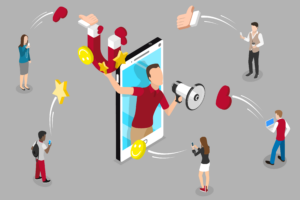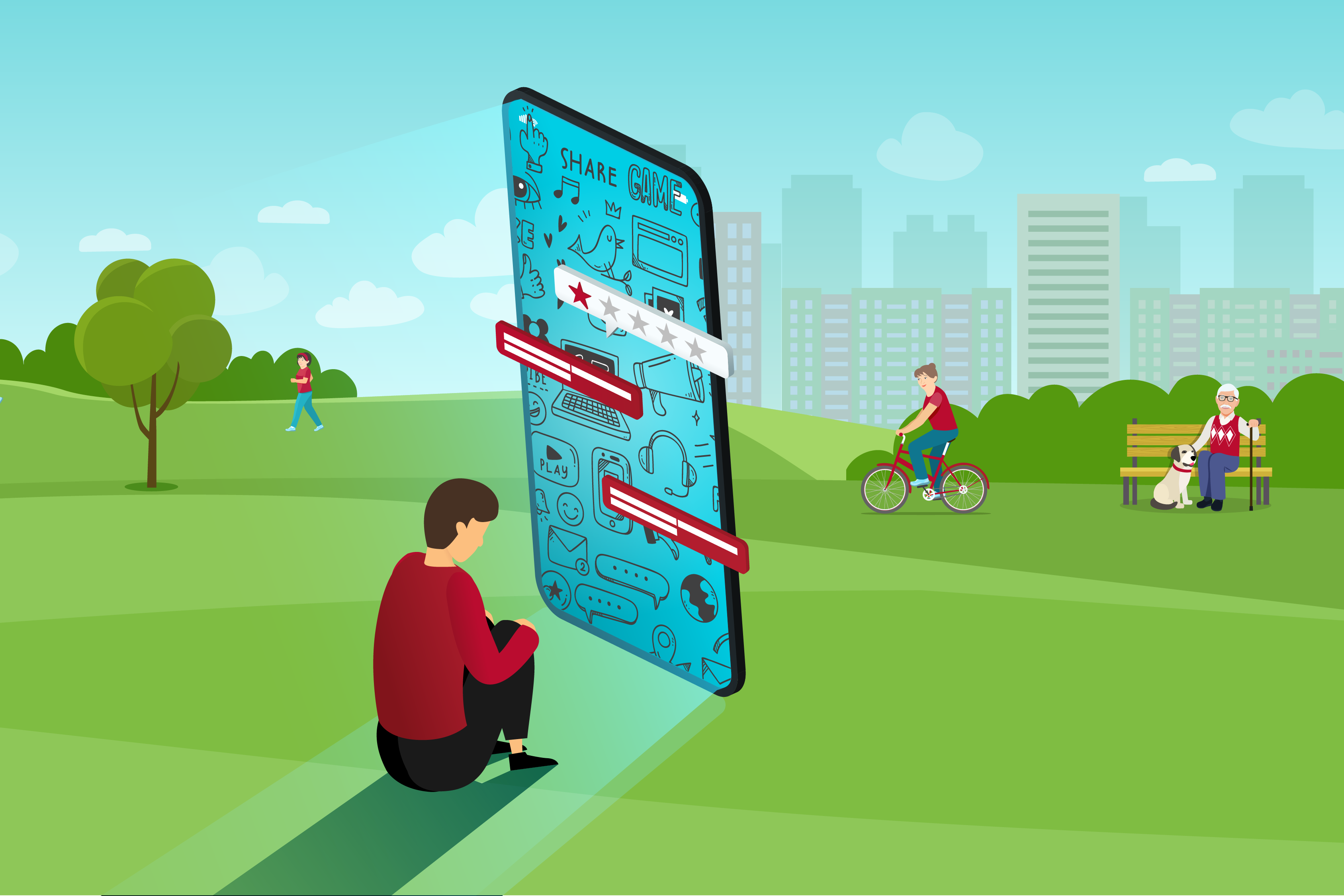The friend we list as a job reference on our resume.
The sick call we make so we don’t miss the Blink 182 concert.
The look of concern we put on for a friend of a friend when they need a shoulder to cry on.
Human beings negotiate the roadblocks in their lives using small falsehoods and misrepresentations every day. Yet, when it comes to social media, not only can these lies be grossly exaggerated, but the consequences can be devasting.
From the 2023 CakeGate dispute that almost ruined a woman’s business to the internet war that rippled through the BookTok community after the fake death of a romance novelist, the sheer volume of users on social media can make it difficult to control the backlash.
Comparison or Competition?
In 2004, Myspace became the first social media platform to top a million monthly subscribers. Now, those numbers wouldn’t make any serious influencer bat an eye. TikTok has over a billion monthly subscribers, and Facebook has almost 3 billion. Over 100 million subscribers joined Threads in less than a week.
With around 1 billion images posted on Instagram a day, it’s no wonder people rely on filters and photo editing to stand out. The social media landscape is so saturated with both users and information that, like any high school or office, it’s become a competitive social environment.
Social comparison theory suggests that people base their self-worth, social status and even relationships on how they compare to others. Though this idea has been studied for over 70 years, social media has given us access to a global network of people to compare ourselves to.
It was difficult enough wondering how you measure up to the cool kid with the NSYNC lunchbox or your older sister on her way to college. Now, when users spend a daily average of 2.5 hours on social media, edited photos and exaggerated stories are the new social currency. With today’s technology and the rapid growth of AI, influencers can easily fake their way to social media stardom through various methods:
- AI photo editing software
- Crafted backgrounds to fake expensive vacations
- “Bots” that engage with social media posts
- Invented relationships between influencers
Lying on social media can not only boost someone’s perceived social value online, but it’s increasingly easy to do. From nano-influencers to celebrities, a tall tale now and then can be incredibly beneficial for our self-esteem and our brand. However, there’s more than one case of these lies going too far.
In April of 2023, bakery owner Kylie Allen became an internet sensation when she complained about a rude customer interaction over her sprinkle-covered rainbow cake. Netizens immediately delved into her posts, her business, and her life.
When it was discovered that the initial feud had started because of misleading photos from Allen’s website, the internet turned on her in a heartbeat. Videos mocking her cakes went viral across TikTok and users flooded her Yelp page with negative reviews.
Allen claimed that the response was unwarranted and there was more to the story but the damage had been done. Even as she kept posting videos on TikTok, it took several weeks before Allen allowed commenting on her posts and even now can’t avoid the occasional, “Got sprinkles?” comment.

The Social Network
Of course, lies on the internet aren’t limited to personal untruths. Political conspiracies, medical misinformation and marketing propaganda are common concerns in modern society. To learn why this information is so widespread and diverse, it’s necessary to understand how it travels.
A renowned expert in political communication and internet misinformation, Itai Himelboim from the University of Georgia studies the complex relationships between social media influencers and influencees.
Have you ever had a friend tell you all about that “trending” rumor online and you have no idea what they’re talking about? Though misinformation spreads quickly, Himelboim’s research suggests it generally flows within specific clusters of people with similar beliefs.
“That’s why we need to shift our focus from who people are to what relationships they are creating,” he says.
Himelboim’s research shows that because people tend to form groups based on shared interests, both online and in the real world, information related to these interests tends to travel faster within these clusters.
The relationships that develop within these clusters make it easier to spread misinformation and potentially more distressing when lies are discovered.
It’s easy enough to label the offenders: virtue signalers, clout chasers, narcissists. But the truth is more complicated.
The Influencer’s Reflection
Keith Campbell at the University of Georgia published his first study on the relationship between narcissism and Facebook in 2008. Since then, he has done several in-depth studies of how narcissists use social media and how common narcissistic traits are.
When your occupation is the “face” you put on social media, something as small as a pimple can be seen as disastrous. These feelings of negative self-worth feed into our obsession with social media, and, as Campbell puts it, “people start to chase that feeling almost like a drug.”
Are social media influencers narcissistic? The short answer: Yes. The more honest answer: So are the rest of us. However, that doesn’t mean it’s a bad thing.
According to Campbell, though extreme or even pathological narcissism exists online, most of what we might label as narcissistic personality traits can more accurately be described as a chance to experience positive self-expression.
“There’s a little bit of bias about this behavior online, but it’s really just putting your best foot forward, the same way you would if you were meeting someone at a party for the first time or going on a first date.”
Cause and Effect
Campbell’s research has also shown a possibility that the increasing amount of time spent on social media is directly linked to rising rates of depression and mental illness. There has even been research that suggests that an obsession with social media is linked to cyberbullying behaviors.
Though many people intend for a positive reaction when posting a new photo or updating their story, it’s undeniable that more research is needed to fully understand the consequences of these complex online relationships.


